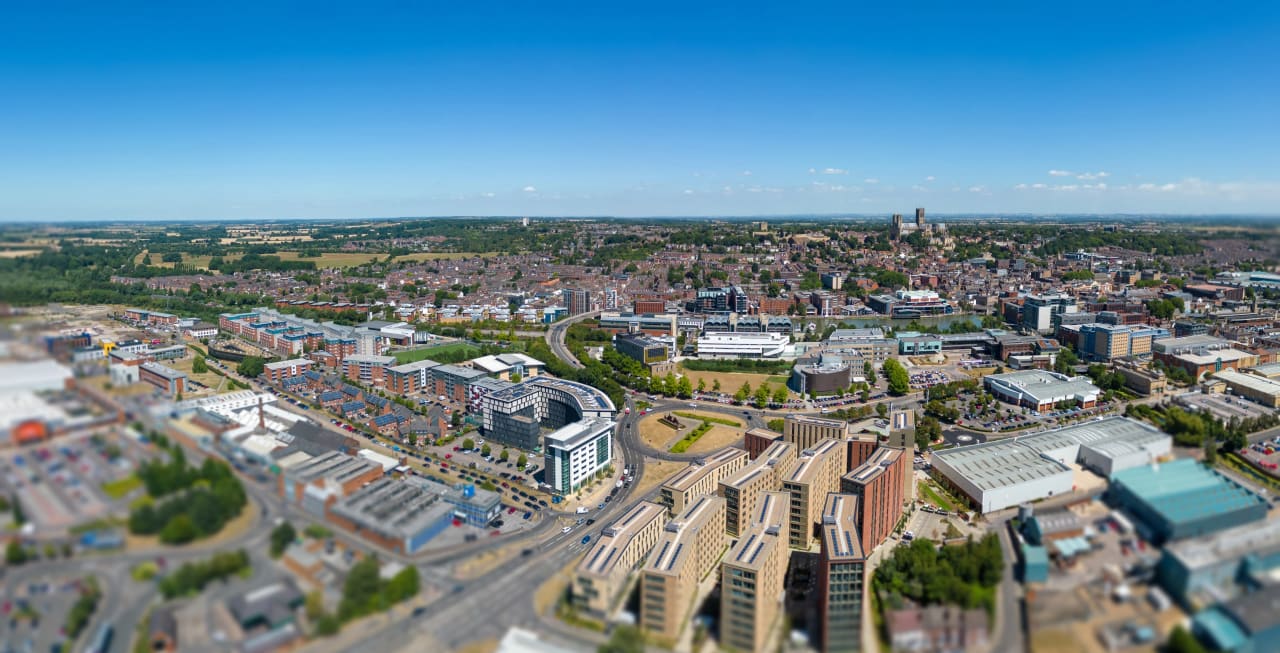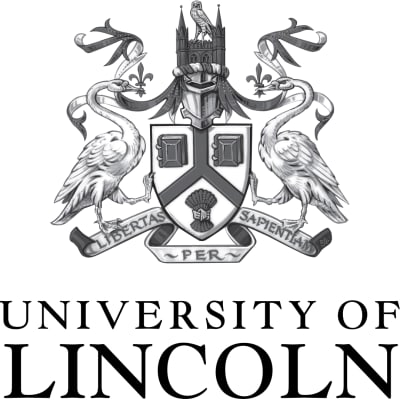
MA Journalism (Arts)
University of Lincoln

Key Information
Campus location
Lincoln, United Kingdom
Languages
English
Study format
On-Campus
Duration
1 - 2 year
Pace
Full time, Part time
Tuition fees
Request info
Application deadline
Request info *
Earliest start date
Request info
* most of our postgraduate courses have no specific closing date for applications. Please allow enough time for your application to be considered prior to the start date. If you are an international student you may need to factor in time for your visa application. We would advise you to apply as soon as possible
Discover Lincoln Wherever You Are in the World
Our webinars, subject masterclasses, question and answer sessions, and student panel talks are a great way to discover what it is like to live and study at the University of Lincoln.
Introduction
This Master’s is designed to focus on the reporting of the arts for those wishing to enter one of the fastest-growing areas of journalism.
As well as the opportunity to learn the essential craft of reporting for a range of platforms from a hands-on perspective, students will also be able to develop the analytical skills necessary to reflect on developments in the arts. They can learn to appreciate artistic movements and genres and to communicate this to an audience.
The program emphasizes reporting and reviewing the creative arts from the niche - such as sculpture - to the more popular - such as cinema and television -, as well as emerging fields like web-based production.
Students in this program are expected to complete an assessed work placement as part of the course. Students are responsible for their travel, accommodation, and general living costs while undertaking work placements.
Prioritising Face-to-Face Teaching
At the University of Lincoln, we strive to ensure our students’ experience is engaging, supportive, and academically challenging. Throughout the Coronavirus pandemic, we have adapted to Government guidance to keep our students, staff, and community safe. All remaining Covid-19 legal restrictions in England were lifted in February 2022 under the Government’s Plan for Living with Covid-19, and we have embraced a safe return to in-person teaching on campus. Where appropriate, face-to-face teaching is enhanced by the use of digital tools and technology and may be complemented by online opportunities where these support learning outcomes.
We are fully prepared to adapt our plans if changes in Government guidance make this necessary, and we will endeavor to keep current and prospective students informed. For more information about how we are working to keep our community safe, please visit our coronavirus web pages.
Research Areas, Projects, and Topics
The department has key research expertise in the following topics:
- Core Broadcast
- Research and Professional Placement
- Contemporary Art Theory
- Journalism and Contemporary Cinema
- Live Arts Reporting
A Newsroom Environment
The teaching of journalism at Lincoln takes place in small groups within a newsroom setting, proving plenty of opportunities for one-to-one interaction with tutors. The program has a careful balance of practical skills, using multi-platform media, and theory, providing students with the knowledge and intellectual skills needed to understand the world of modern journalism.
The School of English and Journalism maintains close working relationships with the BBC and Lincolnshire Echo newspaper. On campus, there are opportunities to gain experience in community radio, multiplatform websites, student newspapers, television, and magazines.
Days Taught
Where possible, core sessions are scheduled on Thursday and Friday, although students may be required to attend on other days of the week depending on module options. Full-time students should expect approximately 12 hours of contact time per week and should be prepared to undertake at least two hours of self-study for every taught hour.
"This information was correct at the time of publishing (July 2023)"
Admissions
Curriculum
Advanced Research Methods (Core)
This module provides the opportunity to develop a methodological understanding and to receive support and advice on the final project. You will then be expected to prepare a written proposal for a dissertation, a documentary project, or a portfolio of articles.
Arts Reporting (Core)
This module provides an opportunity to critically explore the various genres of journalistic writing about the arts and popular culture. The module deals with the skills of the reviewer, whether in literature, film, exhibition, TV, theatre, or the creation of other media artifacts.
The module aims to:
- Develop skills in arts and cultural reporting, reviewing & profile/ feature construction through attending cultural events, consuming cultural products, and meeting cultural workers, in a variety of environments.
- Encourage students to develop a range of different approaches in review features, and to reflect critically on them.
- Explore critically the various genres of journalistic coverage of the arts and popular culture, from fine arts to television.
- Acquaint students with the key concepts and debates concerning the principal forms of artistic expression.
- Examine processes by which critical judgments are translated into journalism.
Essential Reporting (Core)
This module introduces students to the processes of newsgathering and writing news and features for a range of platforms. It aims to develop a critical understanding of editorial processes in news organizations and a working knowledge of how news and feature ideas are generated and packaged for different markets and readerships.
Journalism Production (Core)
This module introduces students to the editorial and production skills required for multiplatform and digital news production. The module focuses on newsgathering and preparing news content for broadcast and online. Students can work in a newsroom environment under appropriate time constraints, experiencing the pressures of operating as a multimedia journalist across a range of broadcast and web-based platforms, including social media.
MA Journalism - Final Project or Dissertation (Core)
The Final Project or Dissertation module consists of either a dissertation, portfolio of articles, radio or television documentary or chapters for a book or webpages. You are expected to spend the final term during the summer on self-directed learning, having already decided on the form of project that you will produce. You will be allocated your own tutor for support and guidance. This final project provides an opportunity to research and make an in-depth study of your chosen study area.
Media Law (Core)
This module introduces students to the areas of the law most likely to be encountered in the practice of journalism and the practice of PR and related communications activities. Students will investigate the interaction between journalism, PR, communications, and the law, and gain a clear insight into the relationships between journalists and officials, PR/communications practitioners, and their clients/employers, and how information is communicated to an increasingly diverse public.
Specialist Journalism Production (Core)
From a digital-first perspective and focusing, in particular, on news and feature content in your specialist field(s) of interest, this module aims to develop the key skills of journalism through regular practice, including newsgathering, writing and interviewing, and live output production with text and audio and video output as required. Online skills will be used throughout, including social media to drive consumers to the content. The journalism and features produced will be outward-facing, using techniques of electronic newsgathering, digital and non-linear editing, production/journalism for online and print, and an appropriate range of live news broadcasting techniques. In this module, you are expected to take up a work placement in one or several different media organizations of your choice. The module provides prior guidance, together with career advice. Tutors will help with research of the employment market, as you arrange international, national, or local work placements, and will support you as you build an individual career profile, CV, and work experience portfolio.
Journalism and Contemporary Cinema (Option)†
This module is designed to enable you to explore and develop an understanding of issues in journalistic film criticism in their historical, cultural, and institutional context, with the aim of assisting you in the writing and production of your own reviews for specified outlets and audiences.
Journalism and Literature (Option)†
This module aims to explore the relationship between literary production and different genres of journalism through detailed case studies of significant writers including Daniel Defoe, William Hazlitt, George Orwell, George Sand, Dorothy Parker, Truman Capote, Hunter S Thompson, Ernest Hemingway and Arundhati Roy.
How You Study
Students can learn in lectures, seminars, and practical workshops. This may incorporate 'news days' which replicate industry newsrooms, along with visits to local arts organizations where appropriate.
Teaching usually takes place on two full days per week. Where possible, core sessions are scheduled on Thursday and Friday, although students may be required to attend on other days of the week depending on module options.
How You Are Assessed
Assessments are a mixture of essays, presentations, portfolios of journalism, broadcast media packages, and timed examinations.
The University of Lincoln's policy on assessment feedback aims to ensure that academics will return in-course assessments to you promptly – usually within 15 working days after the submission date.
Students are required to undertake a ten-day work placement as part of the course.
Accreditations
The School of English and Journalism is one of the first institutions in Europe to be awarded a 'Recognised for Excellence' accolade by the European Journalism Training Association (EJTA).
Gallery
Program Outcome
How You Study
Students can learn in lectures, seminars, and practical workshops. This may incorporate 'newsdays' which replicate industry newsrooms, along with visits to local arts organisations where appropriate.
Teaching usually takes place on two full days per week. Where possible, core sessions are scheduled on Thursday and Friday, although students may be required to attend on other days of the week depending on module options.
Scholarships and Funding
Several scholarship options are available. Please check the University of Lincoln website for more information.
Program Tuition Fee
Career Opportunities
Core modules are designed to support and prepare students for a career in journalism. There are a number of opportunities to gain relevant experience by working for campus media, including the community and student radio stations, a multiplatform website, and the student newspaper.
The University Careers and Employability Team offer qualified advisors who can work with you to provide tailored, individual support and career advice during your time at the University. As a member of our alumni we also offer one-to-one support in the first year after completing your course, including access to events, vacancy information and website resources; with access to online vacancies and virtual and website resources for the following two years.
This service can include one-to-one coaching, CV advice and interview preparation to help you maximise your future opportunities. The service works closely with local, national and international employers, acting as a gateway to the business world.